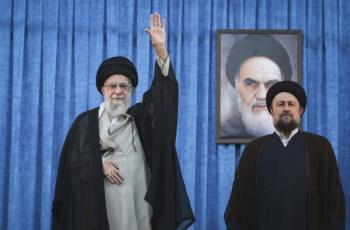While it may seem absurd to bombard militants from different groups while providing logistical support for others who are ultimately fighting to achieve the same goal, Washington has taken on this multi-tasking technique in Syria to serve its end.
An official has confirmed that the US military cargo planes delivered 50 tons of ammunition to so-called rebel groups in the Hasakeh province in northern Syria using an air drop of 112 pallets.
The delivery is seen as part of the Obama administration's efforts to diversify its support for militant groups inside Syria. The US official said all pallets were recovered by "friendly forces".
However, distinguishing between these so-called "friendly forces" and groups such as ISIS -which the US has pronounced as the target of its air strikes but failed to bring its expansion in the war-torn country to a standstill- is not viable. The armed groups, regardless of their brand name, have incurred a gloomy fate for Syria. They have wreaked havoc, killed, injured, kidnapped and committed many atrocities against the Syrian people. Some groups such as ISIS have been labeled as terrorists but other foreign-backed ones have not despite the acts of terror they have committed. Yet as long as these groups fight against Assad, the west and several Arab states are willing to keep funding them.
On the other hand, the US is trying to link an ISIS defeat to the removal of Assad who is battling the terrorist group ferociously.
US President Barack Obama said defeating the group requires "a new [Syrian] leader and an inclusive government that united the Syrian people in the fight against terrorist groups".
Speaking at the U.N. General Assembly, Obama said the United States is willing to cooperate with Iran and Russia to attempt at ending the Syrian conflict on condition that Assad is removed from the picture even in a transition period.
"The United States is prepared to work with any nation, including Russia and Iran, to resolve the conflict...But we must recognize that there cannot be, after so much bloodshed, so much carnage, a return to the pre-war status quo," Obama insisted.
These unraveling developments indicate a shift in the United States' priority list in Syria. From fighting terrorism embodied in ISIS to removing Assad, this move raises question marks over Washington's priorities. Which is a bigger threat to Syria? Is it the blood-thirsty ISIS or President Assad? If we rephrase the question: which is a bigger threat to US interests ISIS or Assad? The answer would be Assad and that's reason enough for the Americans to launch an all-out political war against him despite the threat ISIS poses to the world's security.
Previously, Washington hinted that Assad's removal does not have to be an overnight transition.
US Secretary of State John Kerry has said the timing of Assad's departure should be decided through negotiations.
"It doesn't have to be on day one or month one. There is a process by which all the parties have to come together and reach an understanding of how this can best be achieved," Kerry diplomatized.
The timing of the shift, which follows Russia's military involvement in Syria, speaks volumes about the US change in priorities.
More than 250,000 Syrians have been killed and a million injured in nearly five years of bloody conflict. More than 11 million others have been displaced, four million of them abroad. The figures continue to grow but this doesn't seem enough of a reason for countries such as the US to make Syria's national security a priority instead of obsessing over Syrian government.


























